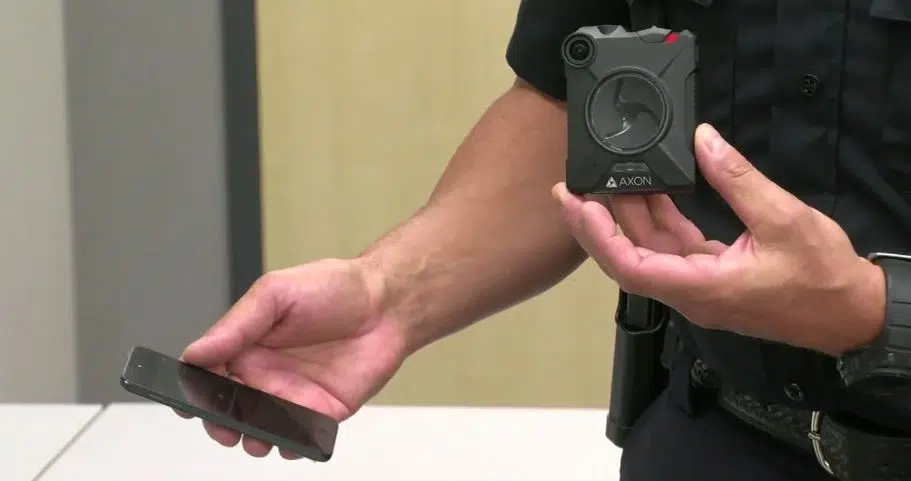
MHPS extends body camera pilot project to 12 months
MEDICINE HAT, AB — Video evidence captured by the cameras officers with the Medicine Hat Police Service wear will soon be used in upcoming court matters.
The service began a pilot project for the body worn cameras in September.
Initially the project was expected to last six months, but the Office of the Chief said the project will be extended to 12 months.
